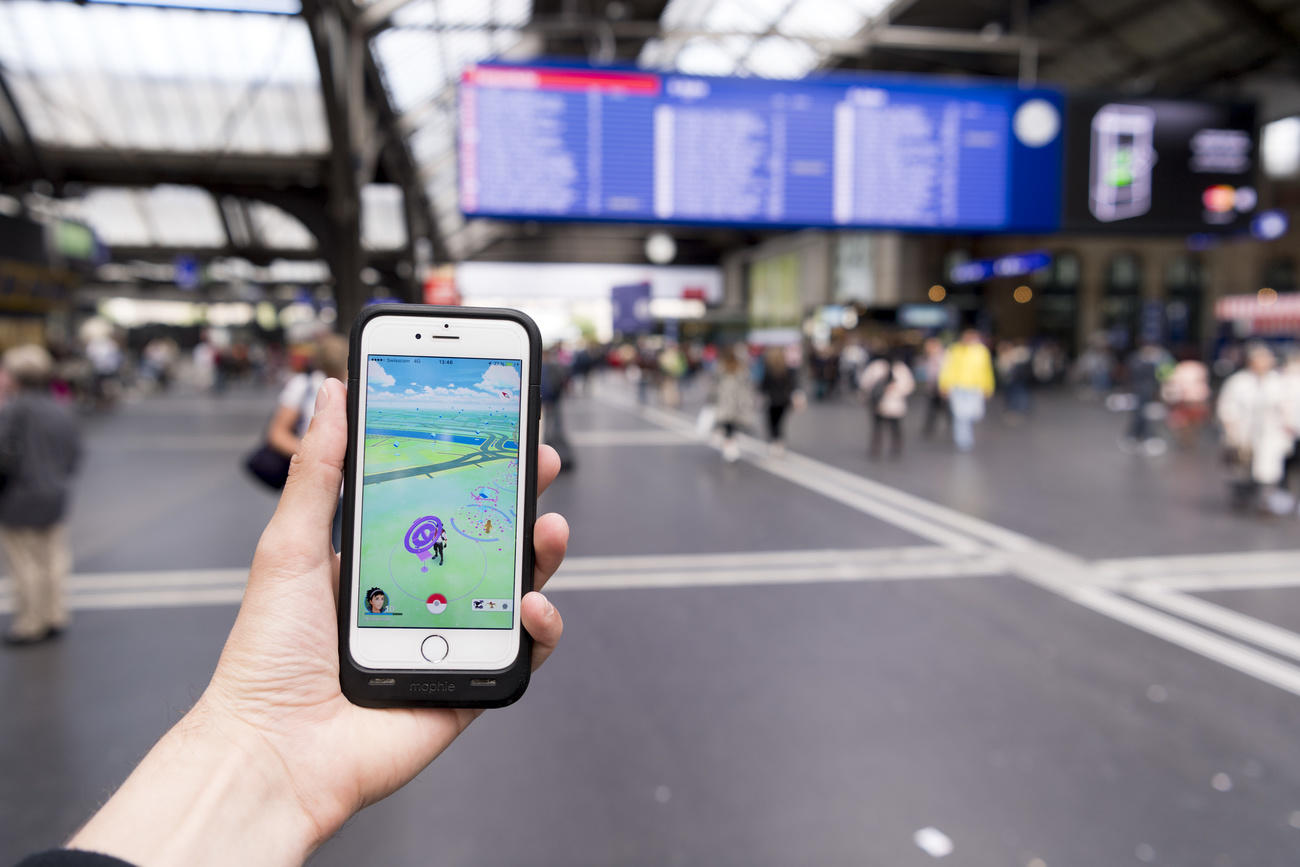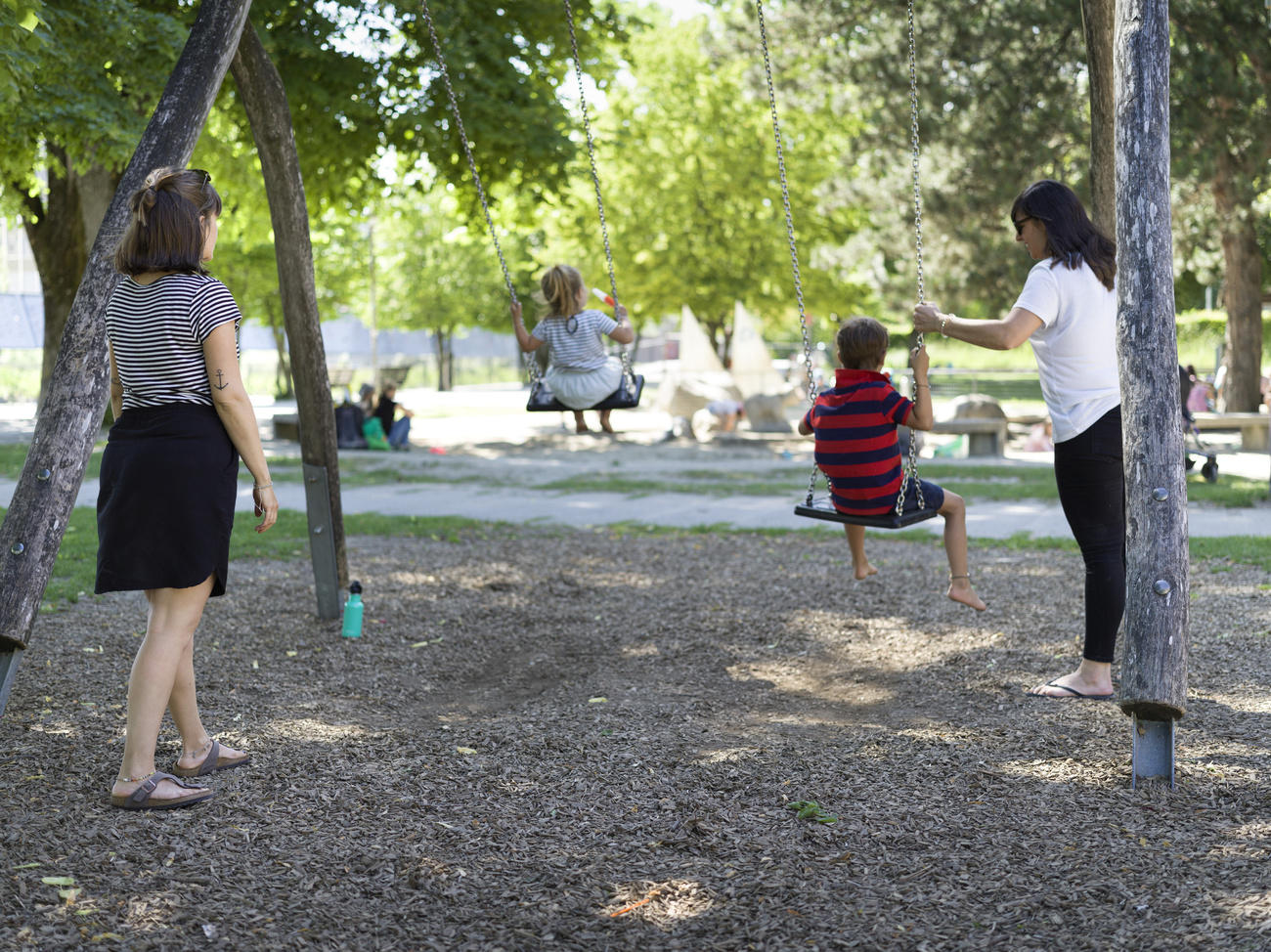
Mobile phone data show Swiss are keeping their distance

The analysis of anonymised data collected by Swisscom and given to the government has revealed that the Swiss population is behaving in a disciplined manner and is following the guidelines set out by the federal authorities to contain the spread of Covid-19.
Health Minister Alain Berset confirmed on Wednesday that, at the government’s request, the country’s largest mobile operator was detecting crowds via mobile phones. The analysis of the data, which are anonymised and delivered with a 24-hour delay, is handed to the government for the specific purpose of limiting the coronavirus pandemic in Switzerland.
Daniel Koch, head of communicable diseases at the Federal Office of Public Health (FOPH), stressed on Thursday that this was “not surveillance”. He said the live movements of phone users could not be traced.
He explained it was a question of seeing whether there were patterns in the movements – and only in public spaces. “It’s a simple reflection of past mobility in public.”
The measure is completely anonymous and completely safe in terms of data protection, Koch said.
Social distancing
The Swiss government has banned gatherings of more than five people and has closed bars, schools, restaurants and other non-essential shops as part of “social distancing” measures to contain the virus that has infected more than 10,000 people in the country.
Under the arrangement, Swisscom informs federal authorities when 20 mobile phones are found within an area of 10,000 square metres (100 metres by 100 metres) in public spaces. Residential areas and business premises are not analysed.
In response to reports by French-language paper Le TempsExternal link, Swisscom spokesperson Christian Neuhaus told news agency Keystone-SDA that there is no live tracking of people but rather data from SIM cards are shared a day later.

More
Coronavirus: the situation in Switzerland
Privacy concerns
The use of technology to monitor those in quarantine and to track infections has raised concerns about possible privacy violations and raised the prospect of a state surveillance. The Chinese government reportedly used technology tools such as facial recognition and mobile tracking appsExternal link to monitor health status and movements of the population at the centre of the Covid-19 outbreak that some people considered excessively intrusive.
At a press conference, Berset sought to assuage these concerns, confirming that there was no intention to carry out real-time monitoring of individuals. Only a few people at the Federal Office of Public Health have access to data and that the data made it possible to observe “the past in an anonymised and globalised manner”, Berset said.
On Wednesday, an association of mobile operatorsExternal link announced that Vodafone, Deutsche Telekom, Orange and five other telecoms providers had agreed to share mobile phone location data with the European Commission to track the spread of the coronavirus.

More
How social distancing is taking hold in Switzerland

In compliance with the JTI standards
More: SWI swissinfo.ch certified by the Journalism Trust Initiative





























You can find an overview of ongoing debates with our journalists here . Please join us!
If you want to start a conversation about a topic raised in this article or want to report factual errors, email us at english@swissinfo.ch.